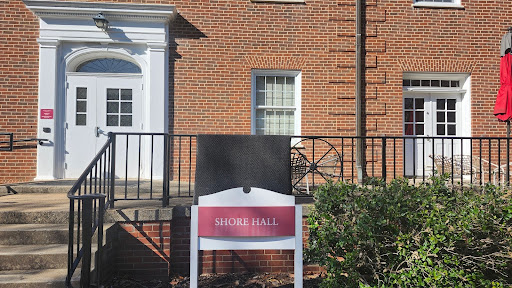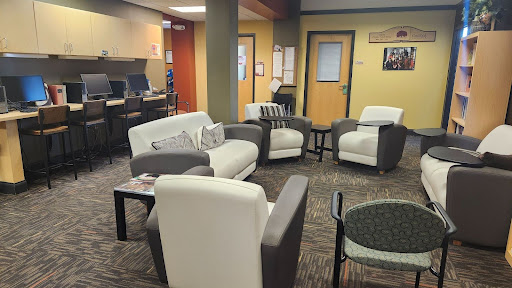Since the community forum on Sept. 27, the Administrative Program and Services Assessment committee has been quietly revising its report, a report that began two and a half years ago when the APSA process was commissioned by President and Professor of Political Science Kent Chabotar to examine the College’s services.
According to a statement from the APSA committee, it has received over 80 pieces of feedback and revised the second draft to address these concerns.
“We followed up with the committee by making our voice known through their means of communication, the response email,” said senior Daniel Raeder. “We also issued an open letter to the community, including the committee, that was published in The Guilfordian.
“We have not gotten any direct response from the committee or anyone involved in the process, but (sophomore) John Madden did meet with members of the committee personally.”
One such committee member was Assistant Academic Dean Erin Dell.
“I’ve talked with (Dell), very casually, a few times about what their process is and what the progress of the report is as of now,” said Madden in an email interview. “I believe that they do want to hold up the concerns of the community, and hopefully they will try and do that while still making the necessary budget cuts.”
Chabotar addressed the necessity of these budget cuts in an email interview.
“No college or university can afford not to look at its current operations and programs to make them as efficient and relevant as possible,” said Chabotar. “Average student debt for independent school graduates is now $29,000 at graduation. The economy suffers from about the highest structural unemployment in decades. Financial aid is rising, a huge price for our traditional enrollment and diversity. Our excellent CCE program is struggling.
“The College did the Academic Program Prioritization Study (which examined academic departments and programs) to focus scarce resources on the academic programs with the highest enrollment potential and quality. I commissioned APSA to do the same on the administrative side. Without even more than the $88 million we’ve raised since 2002, we cannot keep doing all we are doing and survive long term.”
Junior Ines Sanchez de Lozada, among others, felt excluded from the process.
“There was a lack of communication with the overall community about this committee existing in the first place,” said Lozada.
“Another issue is how little diversity there is in the committee … I would like to see more transparency, communication and an intentional conversation with the community about our economic situation, our values and priorities.”
Sophomore Alexandra Barbour explained in an email interview why it felt necessary to write the open letter.
“The school lost $2.5 million in state funding, and that’s not something that can be ignored, so we tried our best not to make the committee or the proposal itself an enemy,” said Barbour. “We really just wanted our concerns to be heard and to show the committee how passionate we are about certain programs facing big cuts or position eliminations.”
The second draft, released on Nov. 22, reflected changes made in response to feedback. Chabotar invited feedback on this second draft until Dec. 6.
According to Chabotar, the final draft should be issued before spring semester.
“Guilford is constantly changing,” said Chabotar. “It is different in 2013 than it was in 2003 or 1993 or 1843. Many excellent suggestions and concerns were expressed about the report. The (draft released on Nov. 22 was) different in scope and content, with revisions that will satisfy many, but not everyone, in our community. You made a difference. You were heard.”





